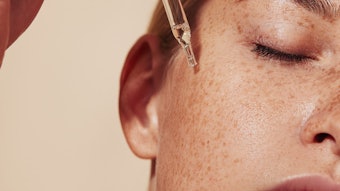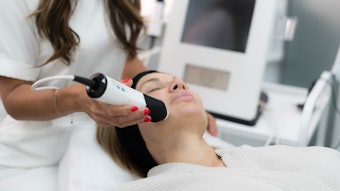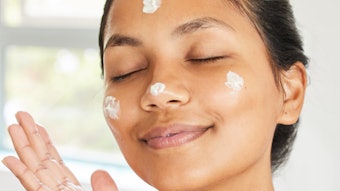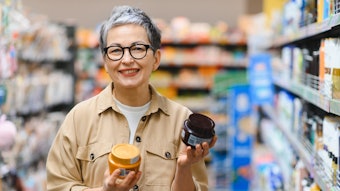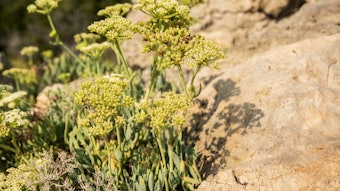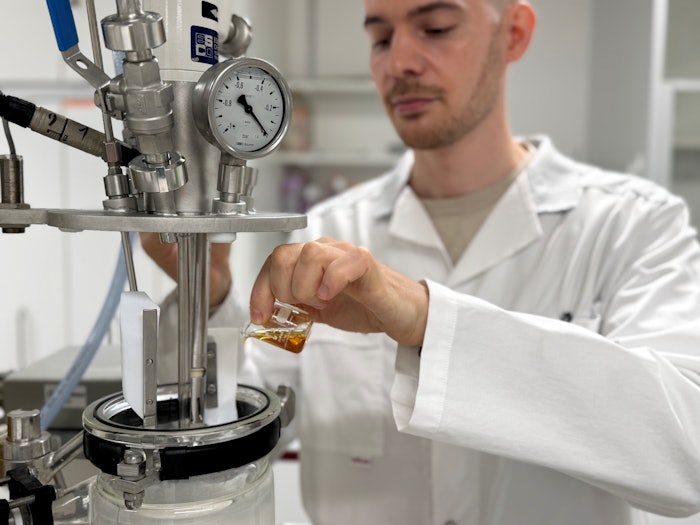
 The project taps LanzaTech biotech processes to convert captured CO2 into alcohol, similar to beer brewing. From there, a fermentation process primarily developed by Fraunhofer IGB transforms the alcohol from the previous step into desirable fats using specialized oil yeasts.Mibelle Group, LanzaTech and the Fraunhofer Institute for Interfacial Engineering and Biotechnology (IGB)
The project taps LanzaTech biotech processes to convert captured CO2 into alcohol, similar to beer brewing. From there, a fermentation process primarily developed by Fraunhofer IGB transforms the alcohol from the previous step into desirable fats using specialized oil yeasts.Mibelle Group, LanzaTech and the Fraunhofer Institute for Interfacial Engineering and Biotechnology (IGB)
The breakthrough reportedly replicates the key benefits of palm oil—heat resistance, extended shelf life and high yields—while eliminating the need for rainforest destruction and the CO2 emissions linked to palm oil cultivation.
The cosmetics industry relies on certified sustainable palm oil as an ethical alternative, but faces challenges meeting growing demand, the companies argue.
The project taps LanzaTech biotech processes to convert captured CO2 into alcohol, similar to beer brewing.
From there, a fermentation process primarily developed by Fraunhofer IGB transforms the alcohol from the previous step into desirable fats using specialized oil yeasts.
Per the companies, "both fermentation stages rely exclusively on naturally occurring, non-genetically modified microorganisms."
The resulting palm-free fats have "outstanding" skin care properties, per the organizations.
The companies have now progressed to a kilogram-scale production of the palm oil-like fat blend by scaling up the fermentation processes at the Fraunhofer Center for Chemical-Biotechnological Processes CBP in Leuna, Germany.
 The CEOs of Mibelle Group and LanzaTech, as well as the director of Fraunhofer IGB, came to Leuna for the launch of fermentation. Left to right: front: Jennifer Holmgren, Ph.D. (CEO, LanzaTech) and Susanne Heldmaier (strategic lead basic research and technical innovation, Mibelle Group); center: Markus Wolperdinger, Ph.D. (director of Fraunhofer IGB) and Bernd Söllner (head of R&D, Mibelle Group); rear: Dr. Holger Wondraczek, Ph.D. (site manager Leuna, Fraunhofer IGB) and Peter Müller, Dr. Ing. (CEO, Mibelle Group).Franhofer IGB
The CEOs of Mibelle Group and LanzaTech, as well as the director of Fraunhofer IGB, came to Leuna for the launch of fermentation. Left to right: front: Jennifer Holmgren, Ph.D. (CEO, LanzaTech) and Susanne Heldmaier (strategic lead basic research and technical innovation, Mibelle Group); center: Markus Wolperdinger, Ph.D. (director of Fraunhofer IGB) and Bernd Söllner (head of R&D, Mibelle Group); rear: Dr. Holger Wondraczek, Ph.D. (site manager Leuna, Fraunhofer IGB) and Peter Müller, Dr. Ing. (CEO, Mibelle Group).Franhofer IGB
"Following successful research in the laboratory, we have now been able to start developing the pilot process," says Susanne Heldmaier, head of research and technical innovation at the Mibelle Group. "This is an important next step, at the end of which we will have the first quantities of a high-quality fat. This will enable us to develop cosmetic products that not only protect our skin but also contribute to protecting the environment. In the future, with the support of our raw material suppliers, we hope to be able to convert more and more palm oil-based raw materials to this sustainable solution."

